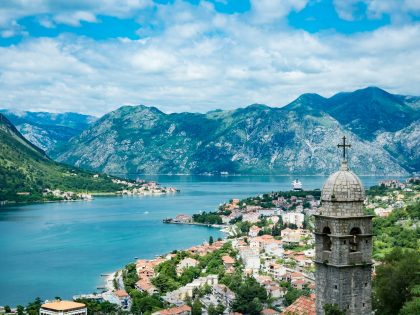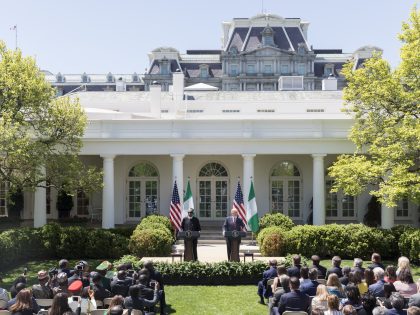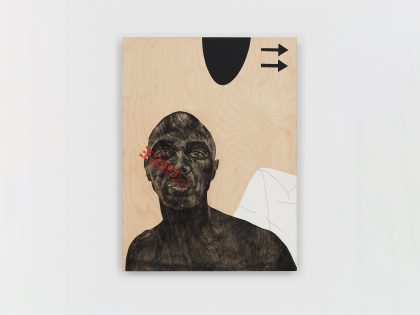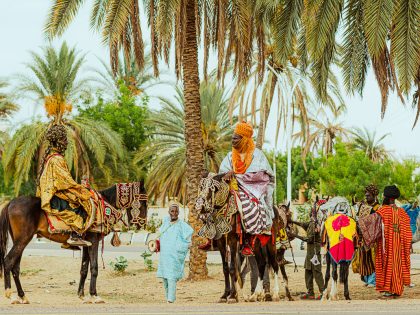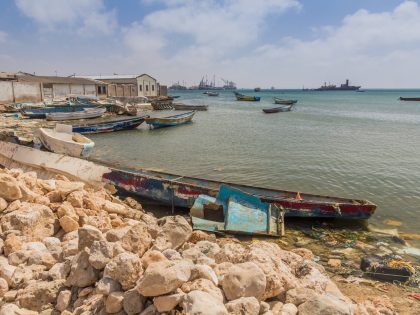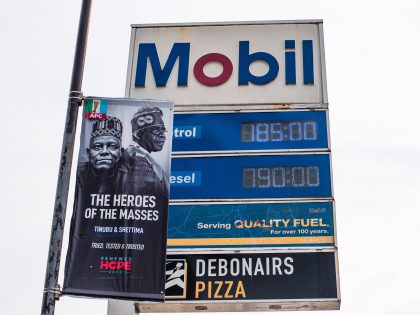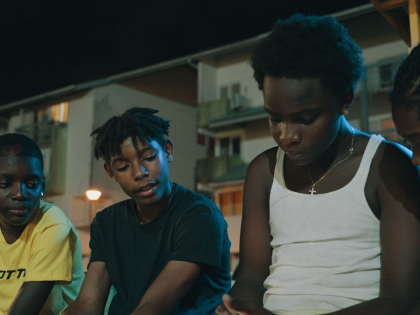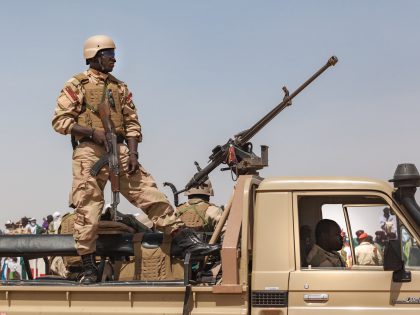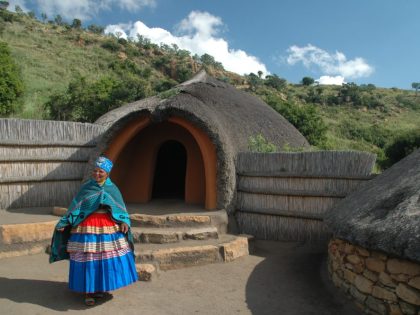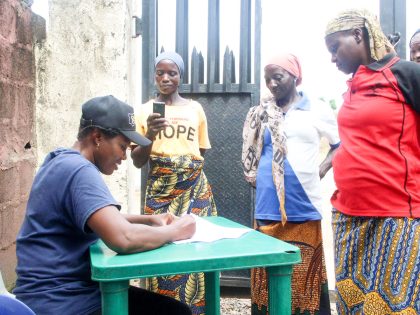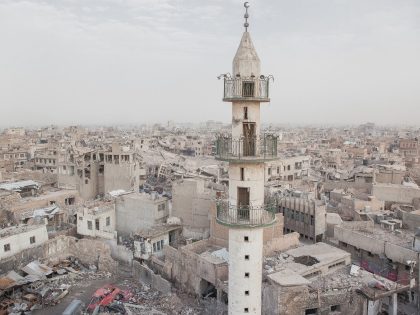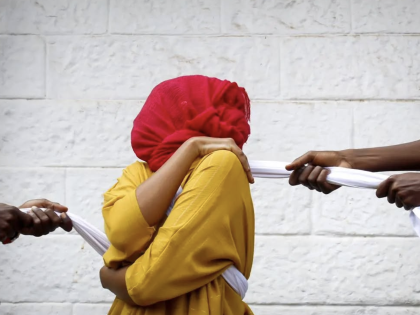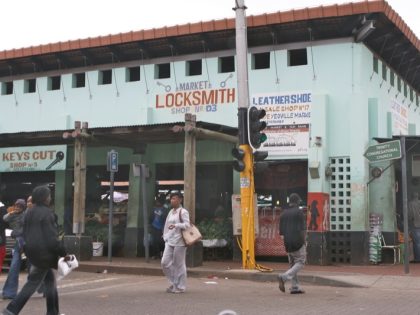Germany’s Namibian Legacy
Jim Naughtom's images of Herero wearing German colonial outfits, is a powerful and necessary form of post-colonial critique.

Photo: Jim Naughten.
So the Bundestag have once again refused to acknowledge that the systematic murders of four ethnic groups in Namibia between 1904 and 1908 wasn’t genocide. Late last month, March 22, the German parliament debated a motion proposed by the Left party to officially recognize the genocide which took place in Namibia between 1904 and 1908. The Namibian newspaper confirmed that the motion has been overturned. It is not a coincidence that in a review of Sebastian Conrad’s book German Colonialism: A Short History, Richard J. Evans notes that evidence of this history can be seen in present-day Namibia: “If you go to Windhoek in Namibia, you can still pick up a copy of the Allgemeine Zeitung, a newspaper which caters for the remaining German-speaking residents of the town. … In Tanzania, you can stay in the lakeside town of Wiedhafen. If you’re a businessman wanting to bulk buy palm oil in Cameroon, the Woermann plantations are still the place to go. In eastern Ghana, German-style buildings that once belonged to the colony of Togo are now advertised as tourist attractions.” (London Review of Books) German colonialism in Africa, obscured by the comparatively more substantial colonies of other European countries and numerically superior crimes of the Nazi genocide, occupies a diminished place in German national guilt.
Thousands of Namibian bodies were prepared, with horrific efficiency by women often related to the deceased, and delivered to scientists in Germany schools and universities. These were harvested from locals who had died at the hands of farmers tasked with ‘searching the land and disrupting settlements’, those interned in camps such as that on ‘Death Island’, where a scientist called Dr Bofinger was apparently at liberty to experiment on inmates (Pambazuka).
Until last September the skulls of 20 Namibians remained in German archives. 15 were from men, 4 women, and 1 from a boy; it is thought that 11 were from the Nama ethnic group and 9 from the Herero (BBC News). In September an official delegation from Namibia travelled to Germany to recover these remains and return them to formal burial in their home country. The reception of this delegation was deeply controversial, causing new tension between Germany and its former colony, and revealing existing problems in both countries.
Christian Kopp, of the ‘No Amnesty to Genocide’ organisation, said the German government’s treatment of the issue had “seriously damaged diplomatic relations” (allafrica.com). An apology by German minister Heidemarie Wieczorek-Zeul in Okakara in 2004 was dismissed by the government as ‘a personal statement’ (allafrica.com). Now government minister Cornelia Pieper is accused of leaving a panel discussion with the Namibian delegates. The German government claimed suspicion of the delegation’s ‘hidden agenda’.
This seems to be a result of in-fighting in Namibia between the victims of German colonialism. Genocide scholar Henning Melber notes in this article that the Herero have in the past claimed that they were the sole victims of the genocide, to the outrage of pepresentatives of the three other groups (Dama, Nama and San). This controversy dogged the centenary commemoration of the start of the 1904 war, and seems to have become Germany’s reason for refusing reparations. A spokesperson for the government claimed
“[i]t would not be justified to compensate one specific ethnic group for their suffering during the colonial times, as this could reinforce ethnic tensions and thus undermine the policy of national reconciliation which we fully support.
Thus the imposed emphasis on national unity becomes the basis for this refusal to recognise genocide. As if reconciliation were possible without commemoration. Domestic political tensions in Namibia have recently reproduced the grammar of colonialism:
The latest tension stems from Youth and Sport Minister Kazenambo Kazenambo’s (KK) outburst calling his fellow ministers ‘stupid Owambos’ with a ‘Boer’ mentality in an interview with Insight Magazine’s Tileni Mongudhi a few weeks ago. (In the Namibian and South African context, the term ‘Boer’, a Dutch and Afrikaans refers to white Afrikaner farmers/settlers dating back to the 17th century, but is also associated with oppression/Apartheid–police where colloqually known as ‘Boere’; some white Afrikaans speakers, especially rightwingers, also claim ‘Boer’ as a political identity.)
KK was the leader of the mission to repatriate Namibian skulls, and this event brings national and ethnic politics into a problematic area of indistinction:
A few months before this latest incident, he hurled racial insults at a white reporter who asked him about the repatriation mission, which he led, for the return of Hereros and Namas skulls (victims of German genocide in Namibia) from Germany. Many Namibians cheered him for standing up against a white person….a ‘Boer’ for that matter. It is the follow-up questioning to this previous incident that, when asked whether he (KK) acted more as Herero than a minister during the skull repatriation mission, that made him go ballistic and physically threaten the journalist and confiscate his voice recorder (which he described in military language as a captured enemy tool). True to military fashion, KK (through his lawyers) had the voice recorder erased by an expert outside Namibia.
Germany, who have agreed to support the development of football in Namibia, organizing youth tournaments in the country, seem unable to provide a meaningful dialogue with the people who have inherited this conflict. University of Michigan academics Julia Hell and George Steinmetz, in an article in the academic journal Public Culture, argue that the lack of a resident population from its former colonies has deprived Germany an intellectual tradition of post-colonial critique.
An interesting post-script to this debate is provided by Jim Naughten’s photoseries of Herero people wearing colonial-era German clothes (examples above). This reproduces the Rhenish missionaries practice of ‘converting and clothing them after European fashion’ as well as Herero traditions: As Naughten writes on his personal website:
Upon killing a German soldier, a Herero warrior would remove the uniform and adopt it to his person dress as a symbol of his prowess in battle. Paradoxically, as with the Victorian dresses, the wearing of German uniforms became a tradition that is continued to this day by Namibian men who honour their warrior ancestors during ceremonies, festivals and funerals.
It would be interesting to learn more about these practices, their role in social life, equivalents in the practices of other ethnic groups and, in particular, whether the comic lens of Naughten’s photographs is imposed. In any event, these images suggest a satirical impulse which, in the absence of meaningful official dialogue, seems a powerful and necessary form of post-colonial critique.


